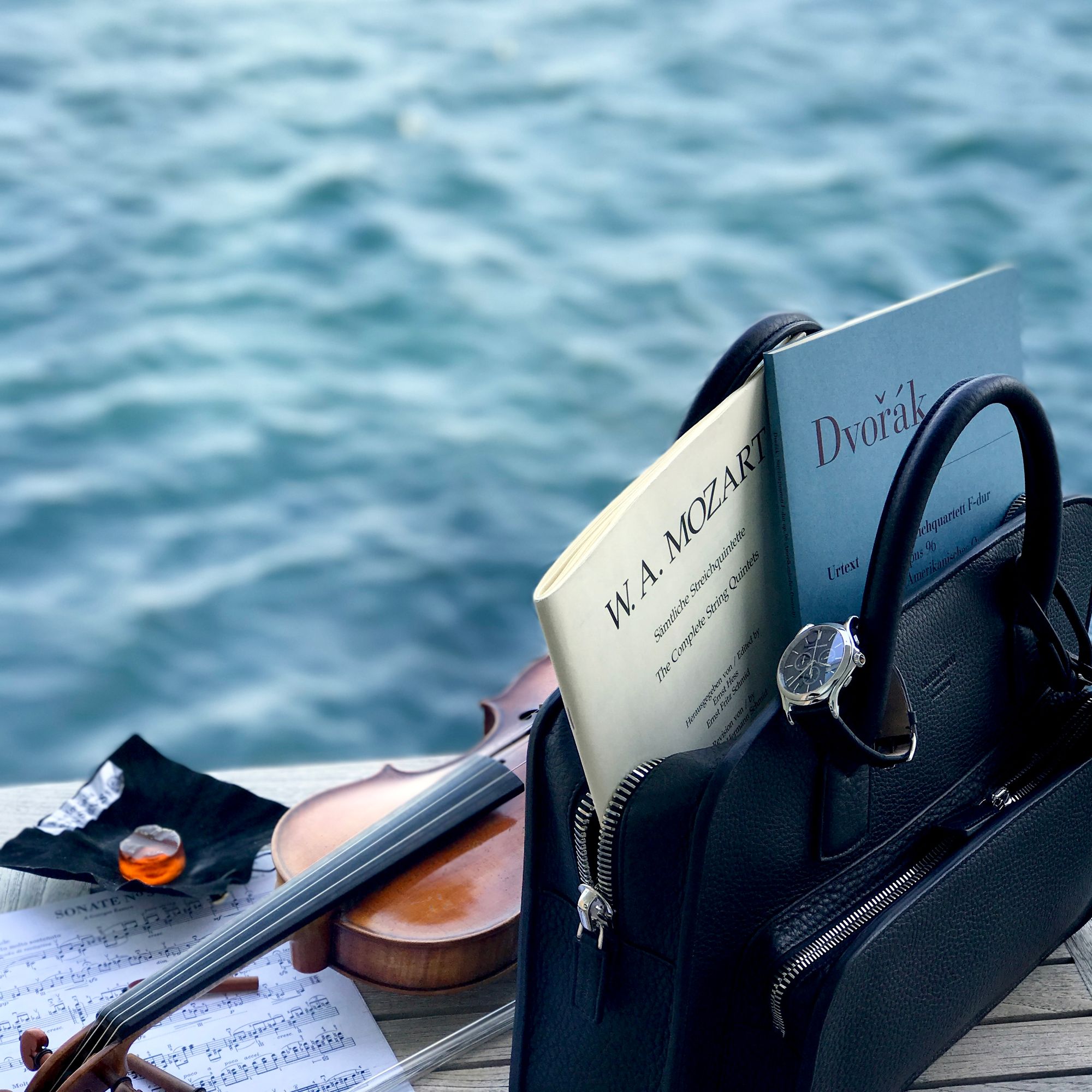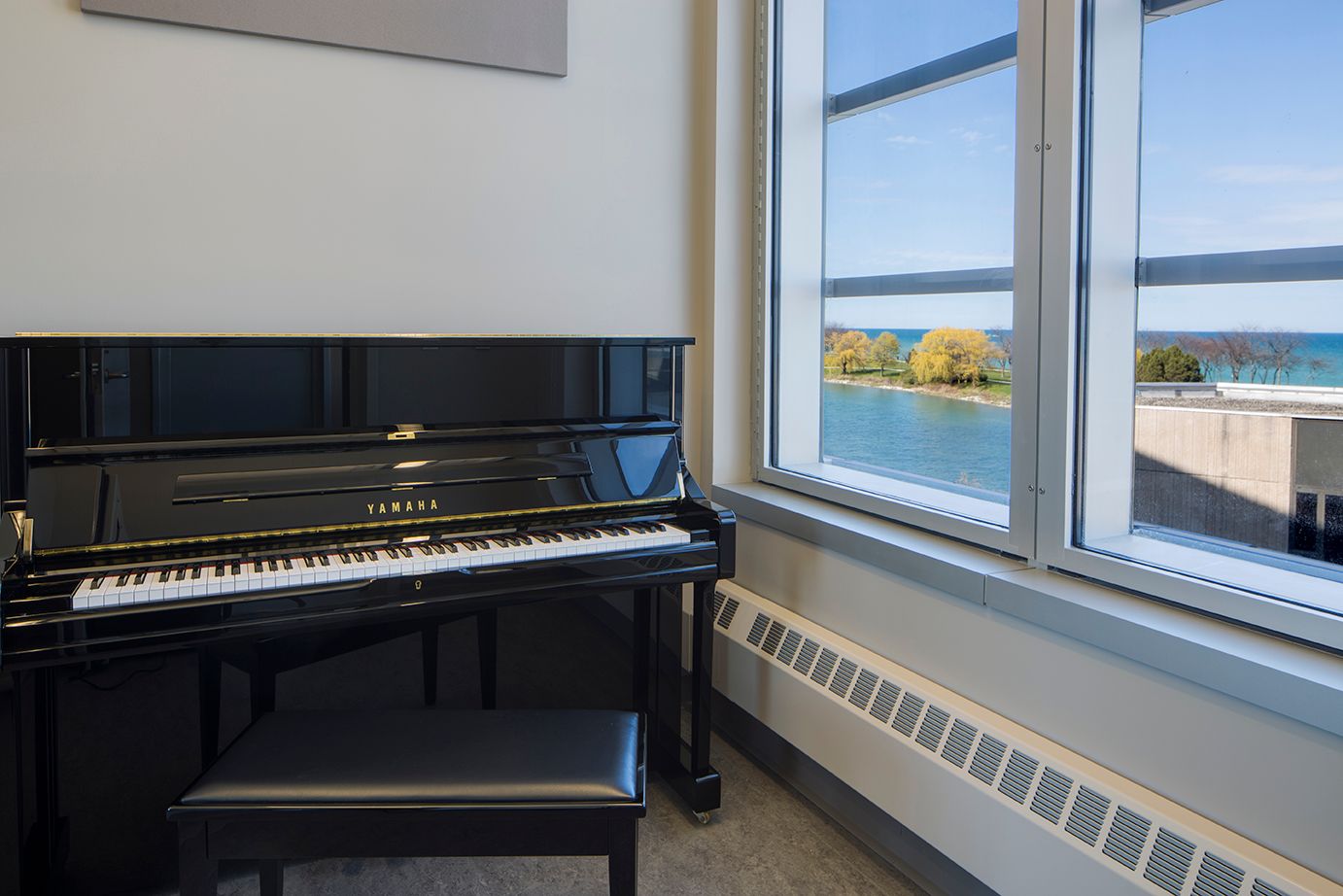Tonic is an elixir for practicing 🧉
Tonic has changed my perspective on practicing. It is so accessible on my phone: all I need to do is open the app, open a studio, and start practicing.
Before Tonic, I didn’t really enjoy practicing. It wasn’t that I didn’t like music or my instrument; I loved playing music, I just didn’t like the practicing part. When I would try to do slow practice or metronome work, I would get bored with the repetition. And when I tried bringing it up to full speed, I would get frustrated that I wasn’t seeing results fast enough. As a result, my practice sessions consisted mainly of playing fun pieces and stuff I could already play. While this made my practice sessions somewhat enjoyable, it was not very productive. Sometimes I would attempt more challenging pieces, but often I’d give up too quickly. I wasn’t practicing in a way that led to much improvement at all.
Tonic has changed my perspective on practicing. It is so accessible on my phone: all I need to do is open the app, open a studio, and start practicing. And as soon as I open Tonic, I can see so many other people practicing as well. It makes it feel a lot less lonely. People might enter my studio and provide helpful comments. The app has made practice feel less like a chore, which helps with procrastination.

Listening to others in their practice studios has also helped me. Through their Studios, I’ve heard how people of all levels – from beginner to professional – practice, and I’ve heard how they practice “properly”, leading to improvement every session. You rarely hear anyone just play through a piece again and again, just hoping to get it right the next try. Often you hear people putting in the work to constantly improve their skills or learn a piece of music; this can be done in many ways, but the main method is to pick out parts of a piece that are hard or uncomfortable, understand why they are hard, and try different methods to improve those sections. Some methods I was already familiar with include metronome work and slow practice, but I’ve also heard people employ methods I hadn’t thought of before, such as singing out loud or practicing a section backwards. The aim is for the player to become comfortable with the technical aspect of a piece so they can be less anxious and focus on the musical aspect while performing.

When you listen to people practice in their Studio, you can hear them putting in the work. I find this inspiring. When they keep practicing a specific passage over and over, you can hear the improvement. This motivates me to practice the way they do, and if it becomes hard, I think of how they kept going. It inspires me to keep going in my own practice, to keep improving until I can perfect the piece I’m playing and perform it.
Another feature Tonic has is the “WIP”—“Work in Progress.” These are videos of yourself playing a piece that you are currently working on. Other community members can watch them, comment, and give feedback to help you improve as well as give compliments and offer encouragement. These videos have a different purpose from the practice studios: they showcase the actual results of my practice. On my WIPs, I receive feedback on how to improve specific parts of a piece from multiple musicians of varying levels and who have learnt music in various ways. They give me tips on new ways to practice that I might not have thought of before. Then, I can use this feedback in my practice studios to improve. WIPs can also be used to document progress of a piece, uploading new versions periodically, showing from the start all the way to performance level.
On top of being really inspiring, the Tonic community is very supportive. When members of the community enter my studio, they sometimes leave comments or emojis; it’s nice and means someone is enjoying listening to me practicing and playing, and this encourages me to keep going. It makes me feel less alone while practicing, like people are cheering me on to keep going. The interaction encourages me to practice more in general because it’s nice to know that anyone can pop in and say hi, or even just listen. This also encourages me to do the same for people in their practice studios.
Even though I now enjoy practicing and playing a lot more than I did before Tonic, I, like everyone, can still have “bad practice days” – days where I just don’t feel like practicing. However, I can go into Tonic and listen to other people practice in their studios and get re-inspired. Hearing others practice, and how they get through problems and overcome obstacles, reminds me of why I practice in the first place. Hearing them motivates me to go practice with a fresh outlook and to keep my practice streak going. Although it is important to know your body, and to know if you’re not physically able or are too tired to practice, but even on those days, you can still go onto Tonic to support others who are practicing and get inspired for the next day.

Through Tonic, I’ve learned so much. I’ve been inspired by other musicians and have a totally new outlook on practicing, which has made me enjoy music so much more. I’ve gotten so much support from people on Tonic, and this has encouraged me to practice. Tonic has changed the way I practice for the better, making it a more enjoyable and productive experience for me. I believe other musicians out there would experience the same. Anyone at any level of skill can discover ways to improve their own practice on Tonic, making it a much more enjoyable, productive, efficient, and less lonely experience.
